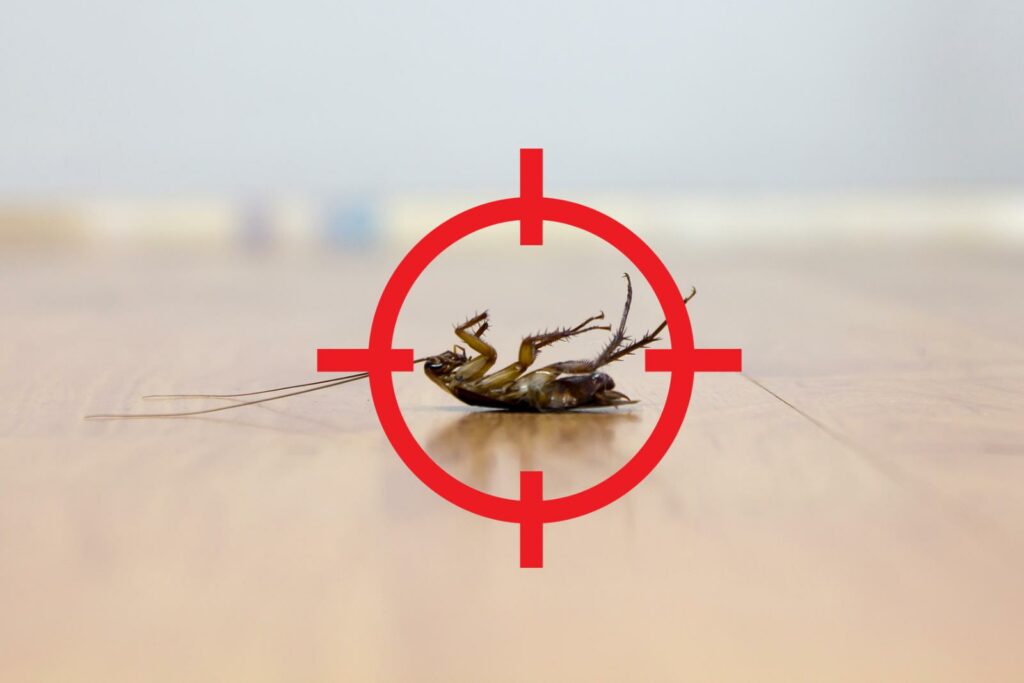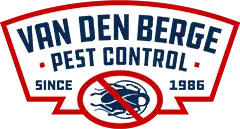
Contents
When thinking about environmentally conscious pest control for your business, try Integrated Pest Management (IPM). This method focuses on sustainable prevention, not just quick fixes. Consider non-toxic pest repellents like essential oils for a natural touch. Biological control methods use natural predators to keep pests in check. Modify habitats to disrupt pests and attract helpful insects. Eco-friendly pest traps offer humane solutions without harsh chemicals. By maintaining sustainability, you’ll enhance your business reputation. For more eco-conscious options, keep exploring the various approaches available.
Key Takeaways
- Integrated Pest Management prioritizes sustainable prevention methods.
- Non-toxic pest repellents like essential oils offer eco-friendly solutions.
- Biological control methods use natural predators to manage pests effectively.
- Habitat modification disrupts pest habitats and attracts beneficial insects.
- Eco-friendly pest traps provide humane and sustainable pest control options.
Integrated Pest Management (IPM) Approach
When implementing an Integrated Pest Management (IPM) approach, consider the various factors that contribute to pest control effectiveness. Sustainable pest prevention is at the core of IPM strategies. By focusing on long-term solutions rather than quick fixes, you’re taking a proactive approach to pest control that benefits both your business and the environment. This method emphasizes prevention through regular inspections, proper sanitation practices, and sealing entry points to deter pests from entering your premises.
In your pursuit of eco-conscious pest management, it’s essential to understand the ecosystem in which your business operates. By maintaining a balanced environment, you can naturally reduce pest populations without relying heavily on chemicals. Encouraging biodiversity and implementing habitat modifications can create a natural barrier against pests, promoting a healthier and more sustainable pest control solution.
When incorporating an IPM approach, make sure to monitor pest levels regularly. By identifying pest hotspots early on, you can address issues promptly and prevent infestations from spreading. Utilizing non-toxic pest traps and biological controls can be effective measures in managing pest populations without harming beneficial insects or the environment. Embracing an IPM approach not only fosters a sense of responsibility towards the environment but also showcases your commitment to sustainable and eco-friendly practices in pest control.
Non-Toxic Pest Repellents
You can explore natural pest repellent options that are safe for the environment. These choices offer effective ways to deter pests without harmful chemicals.
Natural Repellent Options
Utilizing natural repellents is an effective and eco-friendly approach to deter pests without harmful chemicals. Essential oils are powerful deterrents that can keep pests at bay while being safe for the environment. You can easily create your own DIY repellent recipes and techniques using common household items. Here is a table summarizing some natural repellents you can use:
| Natural Repellents | Type | Effectiveness |
|---|---|---|
| Peppermint Oil | Essential Oil | High |
| Vinegar | Household Item | Medium |
| Citrus Peels | Natural Product | Low |
| Garlic | Natural Product | Medium |
| Cinnamon | Spice | High |
Safe for Environment
To maintain an environmentally conscious approach to pest control, consider utilizing non-toxic repellents that are safe for the environment. Sustainable practices and green solutions are key when it comes to pest management that’s both effective and eco-friendly.
By opting for non-toxic pest repellents, you not only ensure the safety of the environment but also contribute to a healthier workspace for all. These green solutions prioritize the well-being of your surroundings while effectively managing pest issues.
Embracing non-toxic repellents showcases your commitment to sustainable practices, creating a space that aligns with your values and promotes a sense of belonging among environmentally conscious individuals. Make the switch to non-toxic options for pest control and take a step towards a greener future.
Biological Control Methods
Let’s talk about natural ways to control pests using biological methods.
Natural predators like ladybugs and birds can help keep pest populations in check.
Parasitic wasps are another effective biological control method that can target specific pests without harming beneficial insects.
Natural Predators
Natural predators play an essential role in controlling pest populations in an environmentally friendly manner. They contribute to maintaining the balance of ecosystems by preying on pests, effectively managing their populations.
Here are three reasons why welcoming natural predators can benefit your business:
Predator Prey Dynamics: By introducing natural predators, you can leverage the natural balance between predator and prey species, reducing the need for chemical interventions.
Sustainable Solutions: Utilizing natural predators aligns with sustainable pest control practices, minimizing the impact on the environment and promoting long-term pest management strategies.
Eco-Friendly Approach: Embracing natural predators demonstrates your commitment to environmentally conscious pest control, fostering a sense of community and responsibility towards nature.
Parasitic Wasps
Using parasitic wasps as a biological control method can effectively manage pest populations while minimizing environmental impact. Parasitic wasps are a sustainable pest control option that helps maintain a balanced ecosystem in your business environment.
These tiny helpers seek out pest insects and lay their eggs inside them, controlling the pest population naturally. Once the eggs hatch, the wasp larvae feed on the pest from the inside, ultimately eliminating it. This method not only reduces the need for harmful chemical pesticides but also guarantees that your business remains environmentally friendly.
Habitat Modification Strategies
Consider adjusting the environment to deter pests through habitat modification strategies. By making a few changes to the surroundings, you can create an unwelcoming habitat for pests, reducing the need for harmful chemicals and promoting a healthier ecosystem.
Here are three effective habitat modification strategies to help you manage pests naturally:
Promote Plant Diversity: Introducing a variety of plants in your surroundings can disrupt pest habitats, making it harder for them to thrive. Different plant species can attract beneficial insects that prey on pests, creating a natural balance that keeps pest populations in check. Embracing plant diversity not only enhances the aesthetic appeal of your business area but also contributes to a more resilient and pest-resistant environment.
Implement Water Conservation Practices: Proper water management not only helps conserve this precious resource but also plays an essential role in pest control. Excess moisture can attract pests like mosquitoes, termites, and cockroaches. By fixing leaks, using watering systems efficiently, and eliminating standing water, you can make your business premises less hospitable to these unwanted intruders.
Maintain Cleanliness and Organization: Clutter and debris provide hiding spots for pests, allowing them to breed and multiply unnoticed. By keeping your surroundings clean, well-maintained, and organized, you can eliminate potential hiding spots and breeding grounds for pests. Regular cleaning routines and proper waste management practices can go a long way in deterring pests from infesting your business space.
Eco-Friendly Pest Traps
Enhance your pest control efforts with eco-friendly traps that are effective and environmentally conscious. When looking for sustainable baiting methods and green pest solutions, eco-friendly pest traps are a fantastic choice for your business. These traps offer a humane way to deal with pests without harming the environment or other animals in the vicinity.
One of the benefits of eco-friendly pest traps is their effectiveness in capturing pests without the use of harmful chemicals. By using sustainable baiting methods, such as natural attractants like pheromones or food sources, these traps can successfully lure pests away from your business premises. Once the pests are captured, you can safely release them back into their natural habitat without causing any harm.
Not only are eco-friendly pest traps environmentally conscious, but they also provide a sense of security for your employees and customers. Knowing that you’re using green pest solutions can enhance your company’s reputation and show that you care about the well-being of your community.
Incorporating eco-friendly pest traps into your pest control strategy can make a significant difference in reducing pests while maintaining a sustainable and environmentally friendly approach. Consider implementing these traps today to create a healthier and more eco-conscious environment for your business.
Preventive Maintenance Measures
When looking to maintain the effectiveness of your eco-friendly pest control efforts, implementing preventive maintenance measures is key. By incorporating sustainable practices into your business routine, you can create a pest-resistant environment that aligns with eco-friendly solutions.
Here are three essential preventive maintenance measures to help you keep pests at bay:
Regular Inspections: Conduct routine inspections of your premises to identify potential pest entry points, water leaks, or food sources that could attract pests. By staying proactive and addressing issues promptly, you can prevent infestations before they occur.
Sealing Cracks and Gaps: Seal any cracks or gaps in walls, windows, doors, and foundations to prevent pests from entering your building. This simple yet effective step can significantly reduce the likelihood of pest intrusion while also improving energy efficiency.
Proper Waste Management: Implement proper waste management practices, such as storing trash in sealed containers and regularly disposing of garbage. Keep outdoor areas clean and free of debris to avoid attracting pests looking for food sources.
Review
When it comes to environmentally conscious pest control options for businesses, there are plenty of effective and sustainable solutions available.
By choosing eco-friendly pest control methods, you can protect your business, customers, and the environment all at once.
Make the switch today and make a positive impact!
Recent Posts
Ultimate Bed Bug Extermination Guide for Homes & Businesses
Ready to fight bed bugs in your home or business? Start by inspecting areas where
5 Powerful Bed Bug Eradication Methods You Need
To eradicate bed bugs effectively, try these five powerful methods: Heat Treatment – raise temperature
7 Best Bed Bug Eradication Methods for Homes
When battling bed bugs at home, start by using heat treatment to kill them at
